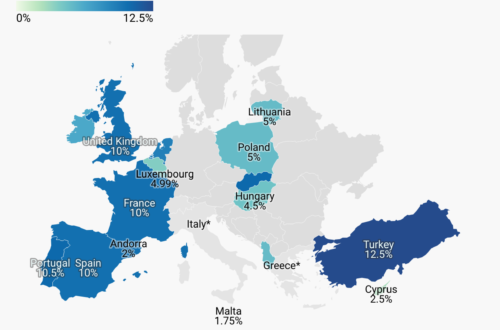-
The Impact of Geopolitical Changes on Habitat Banks and ESG
Recent geopolitical shifts are reshaping the environmental, social, and governance (ESG) landscape, directly affecting habitat banks and nature-based solutions. Governments, corporations, and investors must adapt to these changes to maintain regulatory compliance and achieve sustainable growth.
Geopolitical Tensions and ESG Regulations
Ongoing geopolitical conflicts and shifting alliances have altered environmental policies globally. For instance, the European Union’s Corporate Sustainability Due Diligence Directive (CSDDD) requires companies to account for environmental and social risks across their supply chains. Meanwhile, China’s tightening ESG reporting regulations reflect a growing focus on sustainability despite geopolitical competition with Western economies. These regulatory pressures impact businesses engaged in habitat banking, which relies on stable policies and market incentives to function effectively.
The Rise of Nationalism and Its Effects on Habitat Banking
Many countries are prioritizing national interests over multilateral environmental agreements. For example, the United States’ Inflation Reduction Act incentivizes domestic clean energy production but does not include international biodiversity funding. This shift means that habitat banks, which rely on cross-border conservation financing, may struggle to secure international investments.
Additionally, in the UK, post-Brexit regulatory independence has led to changes in biodiversity net gain (BNG) policies. While the UK government mandates BNG for new developments, funding gaps and policy uncertainty could slow the growth of habitat banks. Businesses investing in habitat creation need to navigate these changes to align with national conservation strategies.
Supply Chain Disruptions and Biodiversity Credits
Geopolitical instability has also affected global supply chains, impacting industries reliant on biodiversity credits. The war in Ukraine, for instance, has disrupted agricultural exports, leading to increased land use pressures in alternative markets like Brazil and Indonesia. This intensifies deforestation risks, complicating efforts to establish habitat banks in these regions.
As a response, corporations are integrating ESG risk assessments into their supply chains. Companies such as Unilever and Nestlé are leveraging satellite monitoring and AI-driven analytics to ensure biodiversity commitments remain intact despite supply chain challenges. By doing so, they protect their ESG credentials while supporting habitat banking initiatives.
Opportunities for Strategic Adaptation
While geopolitical uncertainty presents challenges, it also opens new opportunities. Governments and businesses can foster resilience in habitat banking by:
- Aligning with Emerging Standards: Companies should proactively comply with evolving ESG regulations, such as the EU’s Nature Restoration Law, to ensure long-term viability.
- Investing in Nature-Based Solutions: Organizations can enhance biodiversity commitments by supporting domestic habitat banks, reducing reliance on international programs affected by geopolitical shifts.
- Leveraging Public-Private Partnerships: Collaborating with governments and NGOs can secure funding for habitat conservation amid uncertain policy landscapes.
Conclusion
Geopolitical changes will continue to shape the future of ESG and habitat banking. Organizations that remain agile, anticipate policy shifts, and integrate robust ESG strategies will be better positioned to navigate these complexities. By proactively addressing risks and capitalising on emerging opportunities, businesses can drive meaningful environmental and social impact despite geopolitical challenges.
-
ESG Projects and Investments in 2025: Navigating Opportunities and Challenges
The year 2025 marks a pivotal point for Environmental, Social, and Governance (ESG) projects and investments. As the world grapples with climate change, social equity, and corporate accountability, ESG-focused initiatives continue to shape the global economic landscape. However, the return of Donald Trump to the U.S. presidency in 2025 introduces complexities that may influence the trajectory of ESG investments.
1. The Growth of ESG Investments

Despite economic uncertainties, ESG investments remain robust. According to Bloomberg, global ESG assets under management (AUM) are expected to reach $50 trillion by the end of 2025, accounting for over one-third of total global AUM. This growth is driven by increasing investor demand for sustainable assets, the rise of green bonds, and corporate commitments to achieving net-zero emissions.
For instance, renewable energy projects continue to dominate ESG portfolios. The International Energy Agency (IEA) reports that investments in solar and wind energy surged by 12% in 2024, reflecting a strong commitment to reducing global carbon emissions. Companies like Tesla and Orsted have expanded their renewable energy initiatives, contributing to the decarbonization of key industries.
2. The Impact of Trump’s Presidency on ESG Policies
Donald Trump’s presidency in 2025 introduces potential headwinds for ESG investments, particularly in the United States. Historically, Trump’s policies favored deregulation and traditional energy sectors, including oil and gas. If similar policies are implemented, the growth of ESG initiatives in the U.S. may face significant challenges.
Environmental Impact: During Trump’s first term, the U.S. withdrew from the Paris Climate Accord and rolled back over 100 environmental regulations. A return to such policies in 2025 could reduce federal support for renewable energy projects and weaken global climate initiatives. For example, the Inflation Reduction Act, which allocated $369 billion to climate programs under the Biden administration, may face scaling back, impacting clean energy investments.
Social and Governance Challenges: Corporate governance and social equity initiatives may also encounter reduced emphasis. Policies promoting diversity, inclusion, and labor rights could face rollbacks, potentially influencing investor perceptions of U.S.-based ESG assets. According to PwC, 81% of global investors prioritize mandatory ESG disclosures; reduced regulatory enforcement may erode confidence in American corporations.
3. Regional and Sectoral Resilience

Despite potential U.S. policy shifts, other regions are expected to maintain their ESG momentum. The European Union (EU) remains a leader, with its Green Deal targeting carbon neutrality by 2050. Asia-Pacific markets are also emerging as strong players, with China and India increasing investments in renewable energy and sustainable infrastructure.
Sectors such as technology and healthcare are likely to thrive in ESG contexts. For example, Microsoft’s commitment to becoming carbon negative by 2030 continues to inspire global tech companies. Similarly, ESG-focused healthcare firms are addressing social challenges by expanding access to affordable treatments and vaccines.
4. Investor Strategies for 2025
Given the potential impact of Trump’s presidency, investors are likely to adopt diversified strategies to mitigate risks. These include:
- Geographical Diversification: Allocating funds to regions with stronger ESG commitments, such as the EU and Asia-Pacific.
- Thematic Investing: Focusing on high-growth areas like renewable energy, electric vehicles, and sustainable agriculture.
- Engagement: Collaborating with corporations to advocate for stronger ESG practices, even in challenging regulatory environments.
Conclusion
ESG projects and investments in 2025 remain a cornerstone of global sustainability efforts, with significant opportunities for growth and innovation. The return of Donald Trump to the U.S. presidency introduces uncertainties, particularly in environmental and social policy domains. Investors must navigate these challenges by adopting proactive strategies and leveraging opportunities in resilient markets and sectors. As the world transitions toward a more sustainable future, the balance between policy shifts and market-driven initiatives will shape the success of ESG efforts in the years to come.
-
What’s HOT and What’s NOT
As we enter 2025, investors are navigating a dynamic financial landscape shaped by technological advancements, sustainability imperatives, and shifting market sentiments. Here’s our overview of the sectors attracting investment and those facing caution.
Sectors Attracting Investment
Artificial Intelligence (AI) and Technology
AI continues to captivate investors, with significant capital inflows into AI startups and technologies. In 2024, U.S. venture capital funding surged by nearly 30% year-on-year to a record $209 billion, with AI companies securing 46.4% of this total, a substantial increase from less than 10% a decade ago.
Renewable Energy and Green Technology
Despite recent challenges, the renewable energy sector remains a focal point for investors prioritizing sustainability. Global venture investment in climate tech declined to $30 billion in 2024 from a peak of $48 billion in 2021. However, sectors like energy storage and AI-powered data centres experienced increased investment, indicating targeted interest within the green tech space.
Healthcare and Biotechnology
Advancements in gene editing, telemedicine, and wearable health technologies are attracting investor interest. The global biotechnology market is projected to grow at a compound annual growth rate (CAGR) of approximately 15% from 2025 onwards, driven by innovations in personalized medicine and healthcare delivery.
Sectors Facing Investor Caution
Traditional Energy and Fossil Fuels
There’s a discernible shift away from fossil fuel investments due to environmental concerns and the global transition towards cleaner energy sources. Investments in renewable energy have outperformed fossil fuel investments, with green energy stocks showing a 35% return in 2024 compared to 15% from traditional energy stocks.
UK Equities
UK-focused funds have experienced significant outflows, indicating waning investor confidence in the region’s market performance. UK funds witnessed a net withdrawal of £9.6 billion, contrasting with global equity fund inflows of £27.2 billion. This marks the ninth consecutive year of net outflows for UK funds.
Solar Energy Sector
Despite growth in solar electricity generation, the sector has faced financial challenges, leading to investor apprehension. Global solar electricity generation rose significantly in 2024; however, major solar firms experienced substantial share price declines, and related exchange-traded funds suffered losses.
It’s inspiring to see industry leaders taking bold, practical steps toward a more sustainable future. A 55% reduction in methane emissions and $100 billion invested in low-carbon technologies are achievements worth celebrating!
-
Key Themes for Seed Investments in 2025
The seed investment market remains robust, with global funding for seed-stage startups reaching approximately $20 billion in 2024, a 12% increase from the previous year. Despite economic uncertainties, the average seed round size grew to $2.5 million, reflecting investor confidence in high-potential startups. Notably, the number of seed deals increased by 8% year-over-year, signalling sustained interest in early-stage opportunities.
Investor caution persists due to macroeconomic pressures such as inflation and geopolitical instability. However, this cautious optimism is paired with a willingness to back startups demonstrating resilience, scalability, and alignment with current market trends.
Key Themes Driving Seed Investments
- AI-Driven Solutions
The global market for AI startups is expected to surpass $300 billion by 2025, with seed-stage investments accounting for a significant share. Startups leveraging AI to improve productivity, personalize customer experiences, and optimize operations are receiving strong backing, with nearly 25% of seed funding in 2024directed toward AI-driven ventures. - Climate Tech and Sustainability
Investments in climate tech reached $70 billion globally in 2024, with early-stage startups securing around $8 billion. Technologies addressing renewable energy, carbon capture, sustainable agriculture, and water conservation are drawing significant attention, driven by government incentives and corporate ESG commitments. - Healthtech Innovations
The global healthtech market is projected to grow to $600 billion by 2027, with seed-stage startups playing a crucial role in driving innovation. Areas such as telemedicine, mental health solutions, and biotech advancements attracted $3.5 billion in seed funding in 2024, up 15% from 2023. - Web3 and Decentralized Technologies
While the hype around cryptocurrencies has subsided, Web3 startups raised over $5 billion in 2024, with $1.2 billion allocated to seed-stage ventures. Key areas of focus include decentralized finance (DeFi), blockchain for supply chain, and tokenized assets, as regulatory clarity improves. - Diversity and Inclusion
Funds targeting diverse founders saw a 20% increase in commitments, with $2 billion allocated specifically for startups led by women and underrepresented minorities in 2024. This trend underscores the growing recognition of the market potential in diverse leadership. - Consumer Tech and Creator Economy
The creator economy, valued at $250 billion globally, saw $1.8 billion in seed investments last year. Innovations in social commerce, creator tools, and direct-to-consumer (DTC) models are driving new opportunities, with a focus on scalable models that foster community engagement.
Outlook for Founders
2025 offers a promising yet competitive environment for founders. Securing seed funding requires a clear value proposition, demonstrated traction, and a well-articulated path to profitability. Startups aligning with current investment themes and backed by compelling metrics, such as customer acquisition growth or early revenue, are better positioned to attract funding.
- AI-Driven Solutions
-
The Impact of the Trump Presidency on Sustainable Investing in 2025
Donald Trump’s returns to the White House in 2025 could have a significant impact on sustainable investing in the United States. Throughout his first term, Trump pursued policies that often favoured deregulation, the promotion of fossil fuel industries, and a more market-driven approach to environmental issues. With a second term, these themes could resurface, altering the landscape for investors focused on sustainability and social responsibility. Here’s a closer look at how the Trump administration’s policies could shape sustainable investing in 2025 and beyond.
Reduced Regulatory Pressure on Sustainability
During Trump’s first term, his administration made several moves to roll back environmental regulations, arguing that many of these policies were burdensome for businesses. This included withdrawing from the Paris Climate Agreement, reducing emissions standards, and relaxing regulations around energy production from fossil fuels. With a Trump returns to office in 2025, it is likely that he will continue to prioritize deregulation, especially in the energy sector.
For sustainable investing, this could mean less emphasis on enforcing ESG (Environmental, Social, and Governance) disclosures and sustainability metrics for companies. Investors who prioritize green and sustainable investments may find that the lack of regulatory pressure results in slower adoption of sustainable practices among U.S. companies. This could impact the pace at which sectors such as renewable energy, clean technology, and sustainable infrastructure are able to grow in the U.S.
Fossil Fuel Industry Promotion
Trump’s previous administration was characterized by strong support for the fossil fuel industry, including the promotion of coal, oil, and natural gas. Under a second term, this policy would likely continue, with a focus on energy independence and domestic production of fossil fuels. Such a stance could dampen the long-term growth of renewable energy markets in the U.S.
For sustainable investors, this could present challenges. A policy environment that favors fossil fuel companies may lead to diminished returns for investments in green energy sectors. However, it could also create opportunities for investors who choose to focus on traditional energy sectors, as government subsidies and incentives for fossil fuels could make these sectors more attractive in the short term.
Impact on Clean Energy Transition
While Trump’s stance on renewable energy was often more sceptical, the clean energy sector may still experience growth in 2025 due to global market trends and private sector innovation. Even if the Trump administration continues to minimize federal support for clean energy, investors may increasingly look to markets outside the U.S. for sustainable investments.
In 2025, countries like China and members of the European Union will likely continue to lead the charge in transitioning to green energy, regardless of U.S. policy. While the U.S. might lag in federal support, the private sector could play a critical role in advancing renewable energy technologies and innovation. Investors with a global outlook could focus on international companies involved in renewable energy, electric vehicles, or energy storage.
Potential for Corporate Responsibility to Shift
During Trump’s first term, the administration worked to reduce the scope of corporate social responsibility (CSR) requirements. A second Trump presidency may continue this trend, with a focus on deregulation that reduces pressure on corporations to address social and environmental issues comprehensively. The Securities and Exchange Commission (SEC) and other agencies might not push for stricter ESG reporting requirements, making it harder for investors to assess a company’s sustainability practices.
For sustainable investors, this could pose a challenge in terms of transparency. With fewer requirements for sustainability reporting, it might be difficult to evaluate which companies are genuinely pursuing sustainable practices and which are simply engaging in “greenwashing.” Investors who rely heavily on ESG ratings and disclosures may find that they need to seek out alternative methods to assess companies’ sustainability initiatives, potentially leading to less informed investment choices.
Tax and Incentive Policies for Sustainability
One area where Trump could have a more direct influence on sustainable investing is through tax policies. In his first term, Trump enacted significant tax cuts, and any future tax reform under his administration could favour businesses that produce traditional energy sources or offer limited incentives for green technologies. If incentives for renewable energy production or energy-efficient infrastructure are reduced, investments in these sectors may see less government support.
However, certain private-sector-driven green projects might still be attractive to investors, especially if they align with technological advancements or consumer demand for sustainable products and services. Tax incentives that encourage clean energy development and green infrastructure may be more limited under a Trump presidency, but opportunities could still emerge in sectors such as sustainable agriculture, electric vehicles, and green bonds.
Investor Activism and Corporate Accountability
While Trump’s first term was marked by a relatively hands-off approach to corporate governance in areas like environmental protection, investor activism may still play a role in driving sustainable practices. Shareholder demands for greater corporate responsibility on climate change and social issues may push companies to take action, even in the absence of strong government regulation.
However, under a Trump presidency, there may be a greater emphasis on “free market” solutions rather than government-mandated action. Corporate decisions may be driven more by shareholder interests and profit motives rather than pressure to meet social or environmental goals. Investors focusing on socially responsible investing (SRI) might find it more challenging to push for changes through formal channels and may need to explore alternative means of influence, such as direct engagement with companies or investing in funds that emphasize shareholder activism.
Global Context and U.S. Isolationism
Trump’s “America First” foreign policy stance during his first term suggested a move toward isolationism, which could influence U.S. participation in global sustainability initiatives. The United States may not play as central a role in shaping global climate agreements or sustainable investment frameworks, potentially reducing the influence of U.S. investors on international sustainability standards.
While U.S. investors might focus more on domestic opportunities in a Trump-led future, global sustainability trends—driven by other countries and multilateral organizations—may continue to create opportunities for sustainable investments outside the U.S. Renewable energy companies in Europe and Asia, for example, may attract attention as global demand for green technologies rises, regardless of the U.S.’s stance.
Conclusion
A second Trump presidency in 2025 would likely bring a continuation of policies that emphasize deregulation, energy independence, and a market-driven approach to sustainability. For sustainable investing, this could present both challenges and opportunities. While U.S. support for green energy and environmental regulations may remain limited, international trends, technological innovation, and investor activism may continue to fuel growth in sustainable sectors. Investors will need to adapt to the shifting political landscape and consider a more global approach to sustainable investing, seeking out markets and companies that align with their values despite domestic political shifts.
-
US SIF Foundation: Climate Action Tops 2024 Sustainable Investing Priorities
WASHINGTON, D.C., December 18, 2024 – The US SIF Foundation’s 15th Report on US Sustainable Investing Trends highlights climate action as the leading priority for sustainable investors, both in the short and long term. The report reveals that at the start of 2024, US sustainable investment assets totaled $6.5 trillion, accounting for 12% of all professionally managed US assets.
The 2024 US SIF Trends Report offers in-depth data on asset management firms and institutional asset owners employing sustainable investment strategies. It examines key environmental, social, and governance (ESG) issues shaping portfolio management, while also documenting the size and growth of the sustainable investment market, the findings of the Trends Survey, and emerging industry trends.
Key Insights and Survey Results
Leveraging advanced data analytics and AI tools, US SIF doubled survey participation compared to 2022, gathering responses from over 250 organizations. The findings underscore that addressing climate change and advancing the clean energy transition are top priorities for sustainable investors. Additionally, 73% of respondents anticipate market growth in sustainable investing over the next one to two years. However, only 39% expect their own organizations to increase sustainable investment efforts, suggesting the growth may largely stem from broader market participants.
Since its inception in 1995, the Trends Report has chronicled the transformation of sustainable investing from a niche, values-driven practice to a mainstream financial strategy focused on risks and opportunities. The 15th edition comes at a pivotal moment, as the industry faces challenges such as ESG pushback and greenwashing claims. Despite these obstacles, sustainable investing offers a pathway to address systemic global challenges like climate change, social inequities, and corporate governance.
Methodology Advancements
The 2024 report builds on the 2022 methodology, refining data collection and analysis for greater precision. In partnership with SDGlabs.ai, the report establishes baseline measures of sustainable investment, offering a snapshot of the current market to guide future comparisons. This enhanced methodology ensures consistent tracking and data interpretation, enabling stakeholders to make informed decisions.
Leadership and Expert Commentary
Maria Lettini, CEO of US SIF, emphasized the significant opportunities in climate-focused investing:
“Investor interest in capturing the opportunities of the climate transition remains substantial. Regulatory obligations, shifting client preferences, inter-generational wealth transfers, and the increasing financial risks from climate change are driving this interest.”Andreas Hoepner, Chair & Co-Founder at SDGlabs.ai, highlighted the report’s rigorous methodology:
“This foundation allows us to confidently monitor trends and analyze actual behaviors. It provides a baseline for future comparisons and sets the stage for more frequent, forward-looking research.”Anthony Eames, Managing Director at Calvert Research and Management, underscored the report’s value:
“The Trends Report plays a critical role in identifying drivers of value. It is an invaluable resource for understanding trends that impact sustainable investment portfolios.”Jared Fernandez, Senior ESG Analyst at Boston Trust Walden, pointed to the importance of sustainability in business:
“To stay competitive in a dynamic environment, companies must manage sustainability risks and seize opportunities. The 2024 Trends Report provides key insights based on credible data, making it an essential resource for the industry.”Dan Hanson, Managing Director at Neuberger Berman, stressed the importance of stewardship:
“This report highlights the intrinsic value of stewardship in creating resilient outcomes. Shareholder engagement remains a critical strategy for sustainable investing.”A Path Forward
The 2024 US SIF Trends Report reaffirms the growing relevance of sustainable investing in addressing global challenges. By offering actionable insights and a rigorous framework for understanding market dynamics, the report continues to serve as a cornerstone for the industry’s evolution.
-
The Future of Biodiversity Units: A Transformative Approach to Conservation
Introduction
In an era marked by accelerating environmental degradation and the urgent need for sustainable development, biodiversity units are emerging as a key innovation in the global effort to preserve ecosystems and natural resources. These units represent a new way to quantify, trade, and invest in biodiversity, creating opportunities for conservation at scale while integrating nature’s value into financial and economic systems. This article explores the future of biodiversity units and their potential to redefine the relationship between business, policy, and the natural world.
What Are Biodiversity Units?
Biodiversity units are standardized measures that quantify the value or extent of biodiversity within a particular area. They can account for factors such as species richness, habitat quality, and ecological functionality. These units provide a way to assess, trade, and invest in biodiversity, much like carbon credits have done for emissions reduction.
For example, a biodiversity unit might represent the restoration of a hectare of degraded wetland to a predefined ecological standard. Businesses or governments can then purchase these units to offset biodiversity loss caused by their activities or to fulfill regulatory requirements.
Why Are Biodiversity Units Important?
- Combatting Biodiversity Loss: Biodiversity is declining at an unprecedented rate, with species extinction accelerating due to habitat destruction, climate change, and pollution. Biodiversity units provide a mechanism to directly fund and incentivize conservation efforts.
- Integrating Nature into Markets: By assigning economic value to biodiversity, these units help integrate ecological considerations into financial systems. This encourages businesses to internalize the costs of biodiversity loss and invest in sustainable practices.
- Aligning with Global Goals: Initiatives such as the Global Biodiversity Framework and the Taskforce on Nature-related Financial Disclosures (TNFD) emphasize the need for measurable and market-based solutions. Biodiversity units align with these frameworks, enabling organizations to meet conservation targets effectively.
The Role of Policy and Regulation
Governments and regulatory bodies are likely to play a pivotal role in scaling the adoption of biodiversity units. Policies requiring biodiversity offsets for development projects, as seen in countries like Australia and the UK, are already paving the way. In the future, more jurisdictions may adopt similar mechanisms, expanding the market for biodiversity units.
The development of robust standards and verification processes will also be crucial. Transparent and credible certification systems can ensure that biodiversity units represent genuine ecological benefits, building trust among stakeholders.
Opportunities for Businesses and Investors
- Market Growth: The biodiversity finance market is expected to grow significantly, with biodiversity units offering new investment opportunities. Innovative financial instruments, such as biodiversity bonds and funds, could channel capital into conservation projects.
- Corporate Sustainability: Companies can use biodiversity units to offset their ecological footprints, enhancing their ESG (environmental, social, and governance) performance. This not only mitigates risk but also strengthens brand reputation among consumers and investors.
- Technology Integration: Advances in remote sensing, artificial intelligence, and blockchain can enhance the measurement, monitoring, and trading of biodiversity units. These technologies ensure data accuracy and transparency, making the system more efficient and scalable.
Challenges and Considerations
While the potential of biodiversity units is immense, several challenges remain:
- Defining Metrics: Biodiversity is inherently complex and context-specific, making it difficult to standardize measurement.
- Avoiding Greenwashing: Without rigorous oversight, there is a risk that biodiversity units could be misused as a tool for greenwashing rather than genuine conservation.
- Equity Concerns: The benefits of biodiversity units must be equitably distributed, particularly for indigenous and local communities who often serve as stewards of biodiversity.
Looking Ahead
The future of biodiversity units is promising, with potential to revolutionize conservation financing and policy. As frameworks and technologies mature, these units could become a cornerstone of global efforts to halt biodiversity loss and promote ecological resilience.
However, success will require collaboration across sectors—governments, businesses, financial institutions, and civil society must work together to ensure that biodiversity units drive meaningful and equitable outcomes. With the right structures in place, biodiversity units can bridge the gap between economic development and environmental stewardship, securing a sustainable future for both nature and humanity.
-
Sustainable-Investing Trends to Watch in 2025
As sustainability-aware investors look ahead to 2025, six themes are likely to dominate their lists. They include environmental, social, and governance regulations, carbon-transition investing, sustainable bonds, the reshaping of the global ESG fund landscape, biodiversity finance, and the ethics of artificial intelligence. We discuss them below.
A Testing Year for ESG Regulations
We expect 2025 to be a critical juncture for the EU’s credibility, particularly with the forthcoming results of the Sustainable Finance Disclosure Regulation review and the first wave of Corporate Sustainability Reporting Directive reporting. Corporates and politicians are putting pressure on EU regulators to demonstrate the value and efficacy of ESG policies.
In the US, the new Trump administration is widely expected to roll back ESG initiatives, posing challenges for the low-carbon transition and sustainable investments. For example, Trump is likely to exit the Paris Agreement again, Congress may reduce or eliminate some of the clean energy subsidies in the Inflation Reduction Act, while the SEC may reverse the rules requiring public companies to disclose greenhouse gas emissions and climate-related risks.
Meanwhile, the US Department of Labor’s guidance on ESG factors for Erisa-covered plans is likely to shift back toward stricter rules requiring fiduciaries to prioritize financial returns and avoid ESG-related costs unless they are clearly linked to long-term value creation.
In the rest of the world, the focus will likely remain on rolling out climate and sustainability disclosures such as the International Sustainability Standards Board standards. In parallel, several jurisdictions are due to launch or expand voluntary taxonomies.
The Reshaping of the Global ESG Fund Landscape
By this time next year, the global ESG fund landscape will look significantly different. The main transformative driver will be the ESG fund-naming guidelines issued by the European Securities and Markets Authority. The guidelines aim to protect investors from greenwashing risk by introducing minimum standards for EU funds that use ESG-related terms in their names.
We anticipate that between 30% and 50% of EU ESG funds will change names by mid-2025, while other funds will adjust investment objectives and/or portfolios to keep their ESG-related terms in their names. Some of these will become fossil-fuel-free, while others will rebrand into transition strategies. In the UK, sustainability label adoption will increase next year but will likely remain limited to 150-200 funds.
Meanwhile, we expect an acceleration of fund closures globally. In the US, the USD 353 billion ESG fund market has already started to shrink in terms of number of offerings (although not in terms of assets, which continue to rise, supported by market appreciation). There were 595 ESG funds at the end of September, compared with 647 at the beginning of the year.
ESG fund assets in the rest of the world, which account for 5% of global ESG fund assets, should continue growing, but at a slower pace than in the past.
Transition Investing: From Targets to Tangible Action
Similar to 2024, one major theme for 2025 will be transition investing. We expect investors to take a more hands-on approach to the low-carbon transition, moving beyond simply encouraging companies to set targets to ensuring they take tangible actions.
Investors will also increasingly look at the significant opportunities arising from the energy transition. According to the International Energy Agency, more than USD 6 trillion will be needed per year until 2030 to achieve a successful energy transition.
Since 2021, the green solutions sector, including wind, solar, battery, and electrical vehicles, has struggled to generate good returns for investors investing in public markets, mainly due to high interest rates. However, next year, with central banks expected to cut interest rates and companies becoming more efficient—and despite the uncertainties introduced by the incoming Trump administration’s plans to cut tax credits for green projects—the outlook for low-carbon solutions is positive. Structural drivers—including technological advancements, cost declines, and the rising demand for power—position green solutions, in both public and private markets, favorably despite near-term uncertainty.
Meanwhile, we expect companies operating in the electrical equipment sector to continue to benefit from the rising demand for green infrastructure and building efficiency, supported by robust fundamentals.
Sustainable Bonds: Lower Interest Rates Will Bolster Issuance to USD 1 Trillion
In 2025, we expect the issuance of green, social, sustainable, and sustainability-linked bonds, or GSS+, to exceed USD 1 trillion again, from just under that mark at the end of 2024, supported by a more favourable interest-rate environment and investor demand for sustainable investments. GSS+ bonds have become popular debt instruments to finance the transition.
We will also see the birth of the EU green-bond market. The EU aims to further strengthen investors’ trust in the green-bond market with a new voluntary standard that requires enhanced reporting and verification. Bonds issued under the EU GBS will be required to allocate at least 85% of their proceeds toward EU Taxonomy-aligned sustainable activities.
Furthermore, we anticipate more green-bond issuances to finance green-enabling activities, which play a critical role in facilitating the transition. Examples of green-enabling projects are investments in companies that extract materials (such as lithium), which are vital for green technologies, and companies that manufacture materials (such as insulation) that help reduce emissions in the building sector.
As we move into 2025, it is widely acknowledged that nature, as an asset class, is mispriced. This misguided pricing signal has led to the ongoing degradation of biodiversity, which ranks among the most severe global risks of the coming decade.
Over the past two years, initiatives such as the Taskforce on Nature-related Financial Disclosures, the adoption of the Global Biodiversity Framework, and the UN Biodiversity Conference (COP16), have enabled investors to engage with the issue more effectively.
We expect to see continued interest in biodiversity in the year ahead, with a need to scale nature finance. The rise of innovative financial mechanisms signals growing investor appetite for nature-related investments, but key challenges, including regulatory uncertainty and undefined nature transition pathways, remain.
AI Rapid Adoption Increases Environmental and Social Risks
Finally, artificial intelligence was a prominent investment theme in 2024, and it is likely to continue to rise on the agenda of sustainability-focused investors in 2025.
AI holds great potential to help combat climate change and achieve sustainability goals across industries.
However, its rapid adoption in recent years has revealed significant ESG risks for investors, and these risks may increase in the likely scenario of fewer regulations in the US under the Trump administration.
On the environmental side, AI-fuelled data centres run by tech firms such as Google and Microsoft require a huge amount of (not all green) energy, which not only jeopardizes these companies’ net zero commitments, but also could divert green electricity from other critical sectors that need it more urgently to achieve their decarbonization goals.
On the social side, AI poses a host of new risks, which, if they materialize, can cost companies a lot of money. These risks include privacy breaches, biases, fake news, and copyright infringement, among others. For example, in May 2023, Meta was fined USD 1.3 billion by the EU for mismanagement of its data.
Kognise’s Perspective
As we approach 2025, these six themes will shape the sustainability investment landscape, presenting both challenges and opportunities. Navigating this complex environment will require informed strategies, proactive engagement, and a commitment to long-term value creation.
-
Final Furlong at Chester Races – 9th May

We were the guests of Close Brothers Group plc, the UK-based FTSE 250 merchant banking group and one of the leading merchant banks in the UK, at Chester Races. Met some incredible businesses and had a fabulous day of racing.
The Racecourse, Chester, CH1 2LY
-
Weekend Warrior: Maximising Time Off
Weekends are often seen as an extension of the workweek rather than a time for rest and relaxation. However, it’s crucial for entrepreneurs to prioritize self-care and downtime to avoid burnout and maintain productivity in the long run. Here are some of the best things to do at the weekend to recharge, rejuvenate, and come back stronger than ever.
1. Disconnect and Unplug:
While it may be tempting to stay tethered to your devices and emails, weekends are the perfect opportunity to disconnect and unplug from work-related tasks. Set boundaries by turning off notifications, logging out of work accounts, and refraining from checking emails or messages. This digital detox allows you to recharge mentally and emotionally, reducing stress and preventing burnout.

2. Spend Quality Time with Loved Ones:
Weekends provide precious opportunities to reconnect with family and friends, who often take a backseat during busy workweeks. Make time to nurture personal relationships by scheduling activities such as family outings, brunch dates, or game nights. Building strong connections outside of work not only enhances your overall well-being but also provides valuable support and perspective.

3. Engage in Physical Activity:
Exercise is a powerful antidote to stress and fatigue, making it essential for small business founders to prioritize physical activity on weekends. Whether it’s going for a run, practicing yoga, or hitting the gym, find activities that you enjoy and that energize you. Physical exercise not only boosts mood and mental clarity but also enhances overall health and resilience.
4. Pursue Hobbies and Interests:
Weekends are the perfect time to indulge in hobbies and interests that bring you joy and fulfilment outside of work. Whether it’s painting, gardening, playing a musical instrument, or cooking, carve out time to engage in activities that ignite your passion and creativity. Pursuing hobbies not only provides a welcome respite from work-related stress but also fosters personal growth and well-roundedness.

5. Explore Nature and the Outdoors:
Spending time in nature has been shown to reduce stress, improve mood, and enhance overall well-being. Take advantage of weekends to immerse yourself in the great outdoors by going for a hike, taking a scenic drive, or simply enjoying a leisurely stroll in a local park. Connecting with nature allows you to recharge your batteries, gain perspective, and find inspiration for your entrepreneurial journey.
6. Reflect and Plan:
Weekends provide an opportunity for small business founders to step back and reflect on their achievements, challenges, and goals. Set aside time for introspection and journaling to assess what’s working well and what areas need improvement. Use this reflective time to strategize, set priorities, and plan for the week ahead, ensuring that you start Monday with clarity and purpose.
In conclusion, while the demands of running a small, fast-growing business can be all-consuming, it’s essential for founders to prioritize self-care and downtime on weekends. By disconnecting from work, nurturing personal relationships, engaging in physical activity, pursuing hobbies, connecting with nature, and reflecting on their journey, entrepreneurs can recharge their batteries, foster well-being, and ultimately, fuel their success in the long run.

































